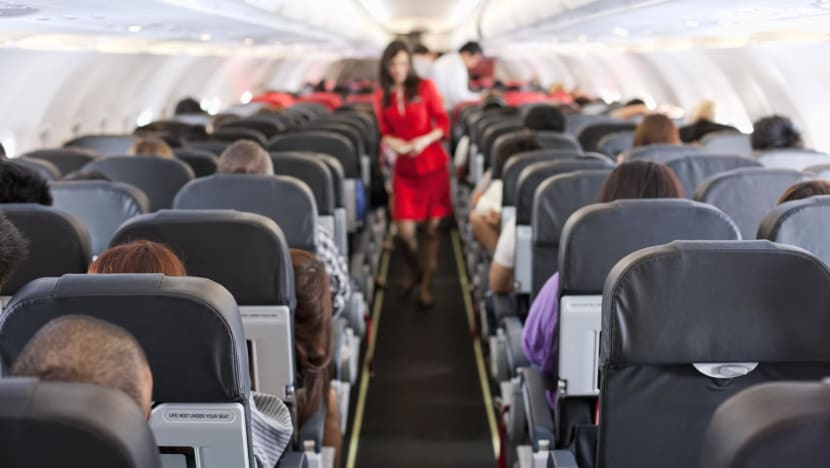Increase in misbehaving, verbally abusive and drunk passengers on flights; IATA calls for prosecution
Physical abuse incidents saw "an alarming increase of 61 per cent" from the previous year, but they "remain very rare", says the International Air Transport Association.

Passengers inside the cabin of a commercial airliner during flight. (File Photo: iStock)
SINGAPORE: The number of unruly incidents on flights increased in 2022, with the International Air Transport Association (IATA) calling for more governments to prosecute passengers for their disruptive behaviour.
There was one incident reported for every 568 flights in 2022, up from one per 835 flights from a year earlier, IATA said in a press release on Monday (Jun 5).
The term "unruly passengers", as defined by the International Civil Aviation Organisation (ICAO), refer to those who fail to respect the rules of conduct on board an aircraft or to follow the instructions of crew members.
According to IATA, the most common unruly passenger incident types were non-compliance, verbal abuse and intoxication.
Physical abuse incidents saw "an alarming increase of 61 per cent" from the previous year, but IATA noted that they "remain very rare" and occur once every 17,200 flights.

WORRYING TREND
“The increasing trend of unruly passenger incidents is worrying," says IATA's deputy director general Conrad Clifford.
The number of verbally abusive incidents reported in 2022 increased by 60 per cent from 2021, while the number of intoxication cases rose by 58 per cent.
Non-compliance incidents initially fell after the mask mandates were removed on most flights, noted IATA, but "the frequency began to rise again throughout 2022 and ended the year some 37 per cent up on 2021".
The most common incidents of non-compliance included the smoking of cigarettes and vapes in the cabin or toiletes, failure to fasten seatbelts, exceeding carry-on baggage allowance and the consumption of alcohol not provided by the airlines.
Passengers must comply with crew instruction for a safe and hassle-free experience on board, said Mr Clifford.
He added that while professional crews are well-trained to manage unruly passenger scenarios, it was "unacceptable that rules in place for everyone’s safety are disobeyed by a small but persistent minority of passengers".
There is no excuse for not following the instructions of the crew, he added.
IATA's latest analysis comes two weeks after a passenger opened an emergency exit on an Asiana Airlines flight in mid-air, minutes before it was due to land in the city of Daegu, South Korea. According to local police, the passenger felt "suffocated" and wanted to get off the plane quickly.
Last year saw a slew of unruly incidents from passengers, with some assaulting cabin crew or defying airline rules.
HANDLING UNRULY BEHAVIOUR
IATA called for a two-pillar strategy to handle unruly behaviour on flights.
The first pillar: Regulation. Under the Montreal Protocol 2014, governments have the necessary legal authority to prosecute unruly passengers, regardless of their state of origin.
"IATA is urging all states to ratify this as soon as possible," said the association, adding that some 45 nations comprising 33 per cent of international passenger traffic have done so.
The second pillar: Guidance to prevent and de-escalate incidents.
This could be done through collaboration with industry partners on the ground such as airports, duty-free shops and restaurants. Initiatives like awareness campaigns and de-escalation training are some examples.
In 2022, IATA released a new guidance document that gathered best practices for airlines and provided practical solutions to governments on public awareness, spot fines, and fixing jurisdiction gaps.
"In the face of rising unruly incident numbers, governments and the industry are taking more serious measures to prevent unruly passenger incidents," said Mr Clifford, adding that the responsibility to behave with respect for other passengers and the crew falls on everyone.
"We make no apology for seeking to crack down on the bad behaviour of a tiny number of travellers who can make a flight very uncomfortable for everyone else."
















